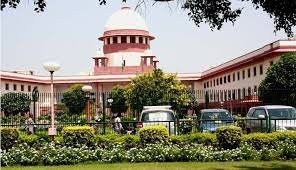
The Supreme Court of India has agreed to hear a petition seeking the banning of websites that display derogatory jokes about the Sikh community. The petition, filed by Harvinder Chowdhury, highlights the grievances of Sikhs who are ridiculed online, particularly through jokes that project them in a poor light. The petition also points out the negative impact these websites have on women and children within the Sikh community, who are often subjected to bullying and ridicule.
During the proceedings on Thursday, a bench consisting of Justices B R Gavai and K V Viswanathan acknowledged the importance of the matter and scheduled a hearing for eight weeks later. Chowdhury, appearing as a petitioner-in-person, informed the court that she would consolidate her own suggestions, along with those of other concerned parties, and file a short compilation of the same. The bench allowed her eight weeks to prepare this compilation and directed that the matter be listed for further hearing after that time.
Chowdhury emphasized the emotional and psychological toll that these online jokes have on Sikh women, who are mocked for their traditional attire, and on Sikh children, who face bullying in schools. She also referred to an incident where a young boy reportedly died by suicide due to bullying related to his Sikh identity.
The petition further cited the existence of over 5,000 websites that publish jokes targeting Sikhs, often portraying members of the community in a negative light. According to the petitioner, these websites violate the fundamental right to life and dignity of the Sikh community, as guaranteed under the Constitution of India.
The Supreme Court’s attention to this matter follows a similar plea filed in 2015, which led to the registration of multiple petitions raising concerns about the harmful portrayal of Sikhs online. The petitioner has argued that these jokes not only insult the community but also contribute to a broader culture of virtual bullying, which can have severe consequences on the mental well-being of individuals, particularly the youth.
The case will continue to develop in the coming months as Chowdhury and other concerned parties work on compiling their suggestions for the court’s review. The outcome of this case could set a significant precedent in addressing the issue of online hate and discrimination targeted at specific communities in India.
Sources By Agencies

